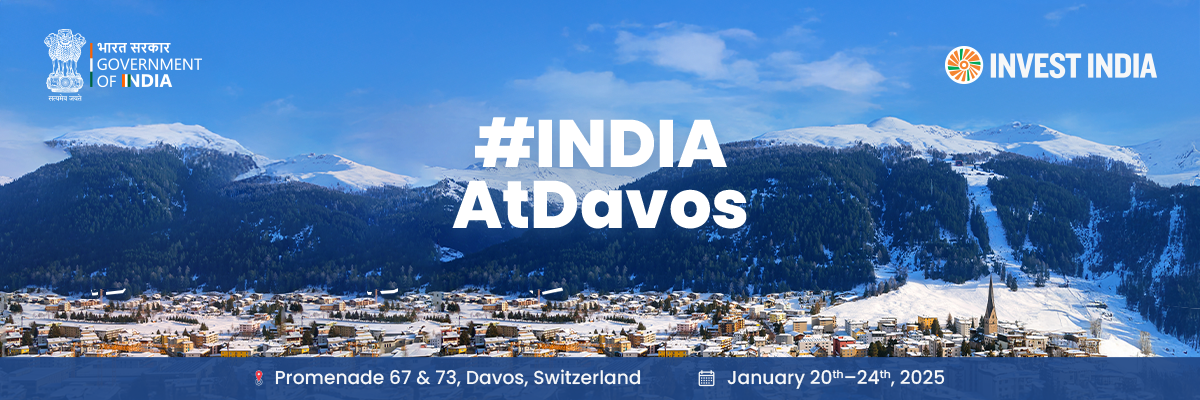‘India a big, long-term growth market, says beverage major PepsiCo’
‘Indian single malts beat global brands, capture 53% sales in 2023’
‘India EFTA trade pact to help push the growth of wine industry’
These are some of the news headlines from last year highlighting the growing expanse of India’s beverage industry: both alcoholic and non-alcoholic sectors.
The country stands at a transformative juncture where tradition meets innovation and local capabilities meet global aspirations. The beverages sector epitomises this confluence, making India one of the most-exciting markets for multinational investments today.
India’s abundant natural resources and favourable geography make it a vital hub for sourcing raw materials for the beverage industry, including coffee beans, spices, barley, maize and fruit.
The non-alcoholic beverages market is expected to reach ~$88.25 billion in 2027, up from $38.03 billion in 2022 (CAGR 18.3%). India is currently one of the fastest-growing alcoholic beverage markets in the world.
In 2023, the industry was valued at $49.6 billion and poised to grow to $64 billion by 2028, showcasing a compound annual growth rate (CAGR) that outpaces global averages.
With 65% of its population below the age of 35, India stands as one of the youngest nations globally, offering a significant demographic advantage for economic growth and development.
This youthful energy is complemented by an expanding middle class, whose growing purchasing power and willingness to experiment are reshaping market dynamics. Their preference for both global brands and locally crafted products creates fertile ground for innovation and investment.
India’s traditional and contemporary spirits are making waves both domestically and globally, showcasing the country’s rich heritage and innovative craftsmanship. Indigenous beverages like Goa’s feni, central India’s mahua and Kerala’s toddy are gaining renewed attention—with significant potential for premiumisation and export.
Meanwhile, Indian single malt whisky brands such as Amrut, Rampur, Paul John and Indri are among the top Indian brands, having won multiple global awards and recognitions in recent years. These include Indri-Trini winning “Best Whiskey in the World” at the 2024 USA Spirits Ratings, Rampur Asava being named “Best World Whisky” at the 2023 John Barleycorn Awards and Godawan 100 securing “Best Single Malt” at the 2024 London Spirits Competition.
Ready-to-drink cocktails are rising in popularity, offering consumers convenient, high-quality pre-mixed options. On the other hand, craft beer continues to thrive, appealing to those seeking diverse and authentic brews.
The non-alcohol sector and rising job opportunities
Health beverages like kombucha, projected to grow at a ~20% CAGR by 2029, are reshaping wellness trends. Major players like Pepsi are entering the market with products like organic Gatorade.
Employing an astounding ~8 million people, both directly and indirectly, the alcobev industry accounts for 1.5% of the nation’s total workforce. The sector provides work opportunities in production, supply chain management and retail—supporting local economies.
Extra Neutral Alcohol, an essential raw material used in alcoholic beverages, provides considerable job opportunities for farmers accounting for around 7,24,611 farms and 36,23,057 farmers for grain production.
Furthermore, 5,70,243 farms and 28,51,216 farmers are employed to cultivate sugarcane, another essential ingredient in alcobev. When one considers the 18,000 farmers who grow wine grapes, the Alcobev industry’s contribution to the nation’s agricultural employment is undeniable.
Additionally, the growth of the beverages industry also positively impacts other ancillary sectors, including glass manufacturing, with the industry accounting for ~22% of India’s overall glass-packaging market.
Global players exploring new areas
Global companies in the beverages sector are making significant investments in the Indian market, underscoring their confidence in its growth potential. Leading players like AB InBev, Carlsberg, PepsiCo, Coca-Cola and United Breweries have been expanding their presence with substantial investments, including new distilleries, brewery operations and strategic acquisitions.
With a robust agricultural base, forward-looking policies and a thriving investment climate, India is set to transform the global beverages sector. By leveraging its rich heritage of traditional drinks and embracing innovation in sustainable production and premiumisation, the industry can craft a compelling narrative that blends tradition, sustainability and excellence.
To learn more about India's presence at WEF 2025 and to register in panels, Click Here
- https://www.ambrosiaindia.com/2024/01/indian-single-malts-outperform-global-single-malts/#:~:text='Amrut%20Fusion'%20changed%20that%20as%20it%20is,barley%20and%2020%20%%20Scottish%20peated%20barley.
- https://www.financialexpress.com/life/lifestyle-indri-trini-to-rampur-asava-7-award-winning-indian-whiskies-ranging-from-rs-2000-to-rs-1-lakh-3438548/#:~:text=Rampur%20Asava.%20Radico%20Khaitan's%20Rampur%20Asava%20was,vanilla%2C%20culminating%20in%20a%20peppery%2C%20spice%2Dladen%20finish.
- https://usaspiritsratings.com/en/blog/news-2/indian-whiskey-indri-dru-single-malt-gets-best-whiskey-in-the-world-award-326.htm#:~:text=Indri%20Dru%20Single%20Malt%20from%20India%20Gets,scores%20products%20by%20Quality%2C%20Value%2C%20and%20Package.
- https://retail.economictimes.indiatimes.com/blog/alcohol-sector-accounts-for-2-of-the-gdp-generates-employment-in-allied-sectors-of-retail-fb-and-more/105611108
- https://retail.economictimes.indiatimes.com/blog/alcohol-sector-accounts-for-2-of-the-gdp-generates-employment-in-allied-sectors-of-retail-fb-and-more/105611108#:~:text=The%20scope%20of%20the%20alcohol,families%20and%20stimulate%20local%20economies.


